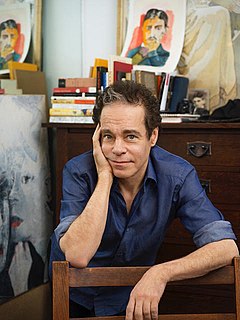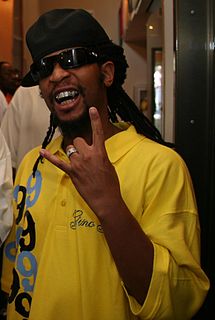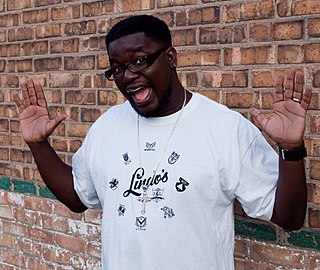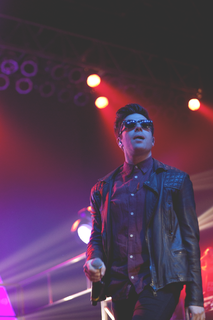A Quote by Steven Sater
When I started to make music at the end of the '90s, I saw myself highly influenced by hip-hop and techno, but I wanted to apply these ideas to something from the local sound; something that had identity, that would say who we were and where we came from.
Related Quotes
If I were to critique myself - step out of KRS objectively and look at him - I would say that KRS has introduced the concept of being hip-hop, not just doing it. The concept of rap as something we do, while hip-hop is something we live. The concept of living a culture. Don't just look at hip-hop as rap music, see it as a culture.
Hip hop started in NY so it's important that New Yorkers realise that to talk about NY music and its sound should not be a small-minded conversation. Music is supposed to evolve. It's supposed to be going through changes, it's not supposed to sound exactly the same as what it did when it started. NY hip hop has to be allowed to move on and grow and expand.
I always make a point to make my records different. Let's say I have a record that's influenced by hip-hop in an abstract way; for the next record, I'd try not to do that. They are all connected in a personal way but it's important not to repeat myself, because then I can always learn something about myself through my work.
This was early '90s and in New York hip-hop was coming on really strong; that was the sort of urban folk music that was almost threatening to eclipse rock music and indie rock music in terms of popularity, which it has certainly gone on to do. But you know, this is the end of the 1980s, beginning of the '90s. The whole independent label thing has really evolved to this incredible point from the early '80s when we started, and there wasn't one record label at all, until a couple people started forming these small labels.
When I say hip-hoppers, I mean black, white, Asian, Latino, Chicano, everybody. Everybody. Hip-hop has united all races. Hip-hop has formed a platform for all people, religions, and occupations to meet on something. We all have a platform to meet on now, due to hip-hop. That, to me, is beyond music. That is just a brilliant, brilliant thing.
To me, that's the biggest problem with hip-hop today is the fact that everyone believes that all of hip-hop is rap music, and that, when you say "hip-hop," it's synonymous with rap. That when you say "hip-hop," you should be thinking about breakdancing, graffiti art, or MCing - which is the proper name for rap - DJing, beat-boxing, language, fashion, knowledge, trade. You should be thinking about a culture when you say, "hip-hop.".




































